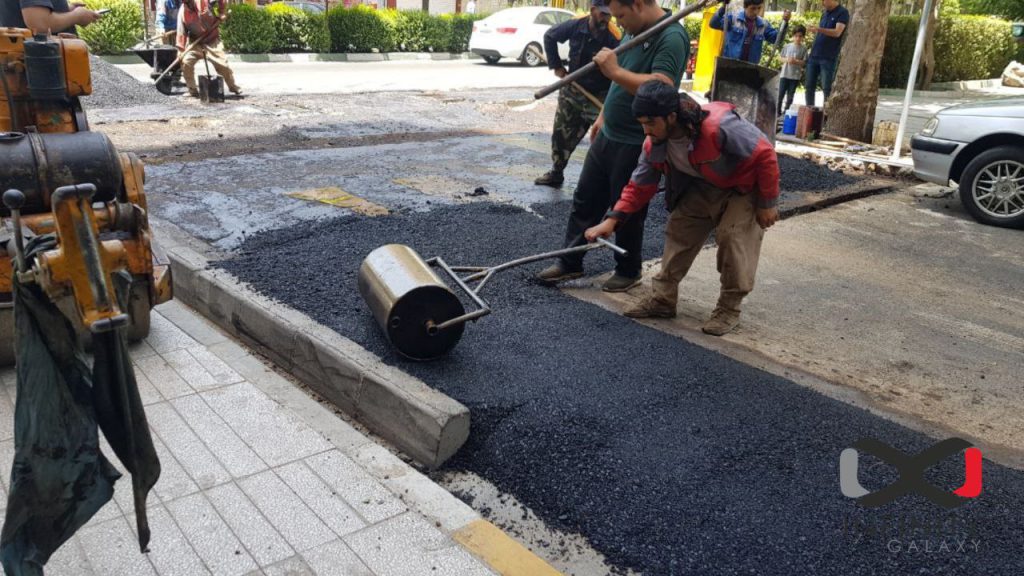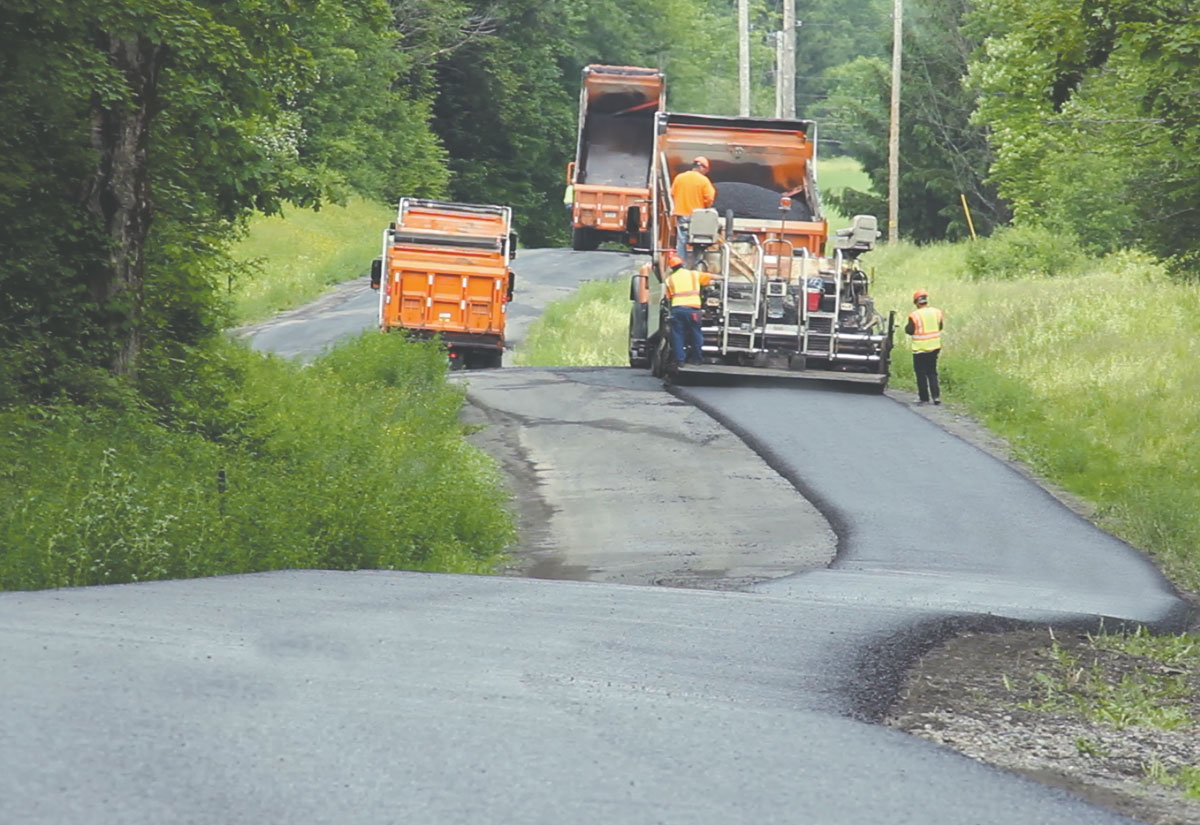Smooth, Seamless Surface Areas: Asphalt Repair Techniques for Lasting Results
Smooth, Seamless Surface Areas: Asphalt Repair Techniques for Lasting Results
Blog Article
Cold Mix Asphalt: Changing the Way We Build Roads
As the facilities sector continues to evolve, the application of cold mix asphalt presents a promising change in roadway construction methodologies. Its flexibility to various weather problems and sustainable features have triggered rate of interest in the building and construction market. The cutting-edge properties of cool mix asphalt are challenging typical road-building methods, paving the means for enhanced performance and longevity. This transformative material is not only improving the building and construction landscape however additionally increasing appealing concerns regarding its long-term effect on framework development (Asphalt Repair).
Advantages of Cold Mix Asphalt
What advantages does cold mix asphalt offer over standard warm mix asphalt in roadway building and construction projects? One vital advantage is its ability to be utilized in all climate problems, unlike warm mix asphalt which calls for specific temperature conditions for laying and blending.
Furthermore, cool mix asphalt is more ecologically friendly as it requires less power for production and sends out reduced levels of greenhouse gases compared to hot mix asphalt. These advantages combined make chilly mix asphalt a flexible and reliable option for different road construction jobs.

Environmental Benefits
One of the key ecological benefits of chilly mix asphalt is its lower carbon impact contrasted to hot mix asphalt. In addition, chilly mix asphalt is frequently made utilizing recycled products such as reclaimed asphalt pavement (RAP) and recycled asphalt tiles (RAS), further minimizing the need for brand-new raw products and drawing away waste from garbage dumps.
Furthermore, the use of cool mix asphalt can cause decreased energy consumption during building as a result of its capability to be used using conventional equipment without the demand for added heating procedures. This not just lowers gas intake yet also minimizes air contamination and enhances air top quality in the surrounding areas. By choosing chilly mix asphalt for roadway jobs, building firms can make a positive effect on the setting while still making sure premium and sturdy road surfaces.
Versatility in Climate Condition
In road construction tasks, the flexibility of cool mix asphalt in different climate problems enhances its usefulness and effectiveness. Unlike warm mix asphalt, which requires high temperatures throughout mixing and installment, cool mix asphalt can be used in a variety of climate condition. Asphalt Repair. This flexibility makes it an important choice for road building in areas with extreme temperature levels or unpredictable weather patterns
Cold mix asphalt continues to be workable even in winter, permitting building and construction projects to continue during winter season months when warm mix asphalt may not be a feasible option. Its capability to treat and set without the requirement for heats makes sure that road maintenance and repairs can be accomplished year-round, minimizing disruptions to website traffic circulation and decreasing overall project timelines.
Furthermore, cold mix asphalt's strength to wetness makes it suitable for locations vulnerable to constant rainfall or high humidity. Its flexibility and resilience enable it to withstand development and contraction created by temperature level fluctuations, contributing to longer-lasting roads that need fewer fixings with time. In general, the versatility of chilly mix asphalt in various weather condition conditions makes it a trusted option for lasting and efficient road building and construction projects.

Cost-Effectiveness and Sustainability
Taking into consideration the financial and ecological impacts of road building products, exactly how does the cost-effectiveness and sustainability of chilly mix asphalt compare to conventional choices? Cold mix asphalt provides a compelling cost-effective and lasting service for road construction. In terms of cost-effectiveness, cold mix asphalt generally needs lower manufacturing temperature levels, decreasing energy usage and production expenses contrasted to warm mix asphalt. The capacity to be accumulated for extended periods without hardening additionally minimizes waste and enables for much easier upkeep and repair services, bring about check these guys out general cost financial savings. In addition, using cold mix asphalt can result in reduced transportation expenses as a result of its longer service life and the possibility of being produced on-site.
From a sustainability viewpoint, cool mix asphalt offers numerous ecological advantages. Its reduced production temperature levels result in minimized greenhouse gas discharges and power consumption, straightening with efforts to mitigate environment adjustment. In addition, the capability to reuse existing products into cold mix asphalt adds to a circular economic climate technique, decreasing the demand for virgin materials and lowering general ecological impact. Generally, the cost-effectiveness and sustainability of cool mix asphalt make it an appealing option to standard roadway building materials.
Effect On Roadway Durability
Roadway durability substantially influences the lasting performance and maintenance needs of asphalt sidewalks. Cold mix asphalt, with its distinct features, has a notable effect on road sturdiness. One helpful resources essential facet is the capability of cold mix asphalt to withstand temperature variations without endangering its architectural honesty. This flexibility helps the pavement to resist rutting and fracturing created by changing weather, leading to a longer life span for the roadway.
Additionally, the chilly mix asphalt's boosted resistance to dampness damages plays a crucial function in preserving road resilience. Conventional hot mix asphalt is much more prone to dampness infiltration, which can damage the pavement framework over time. In contrast, cool mix asphalt's composition enables it to better stand up to water penetration, minimizing the possibility of splits and other types of degeneration.
Conclusion
Finally, cool mix asphalt uses a wide range of advantages for roadway building, including ecological benefits, adaptability in weather, cost-effectiveness, and enhanced roadway toughness. Its ability to be utilized year-round and its lasting techniques make it a transformative choice for producing roadways that are both durable and ecologically pleasant. With its ingenious strategy and long-lasting results, chilly mix asphalt is changing the means we build roads for a much more sustainable future.
What advantages does cool mix asphalt deal over standard warm mix asphalt in roadway building projects? Additionally, chilly mix asphalt is more environmentally pleasant her response as it calls for less power for production and emits lower levels of greenhouse gases contrasted to warm mix asphalt. Asphalt Repair. In addition, chilly mix asphalt is frequently made making use of recycled products such as reclaimed asphalt sidewalk (RAP) and recycled asphalt shingles (RAS), more lowering the demand for brand-new raw products and drawing away waste from garbage dumps
Unlike warm mix asphalt, which needs high temperature levels during blending and installation, cool mix asphalt can be used in a vast range of weather conditions. In terms of cost-effectiveness, cool mix asphalt generally requires lower production temperatures, lowering power consumption and production prices contrasted to hot mix asphalt.
Report this page